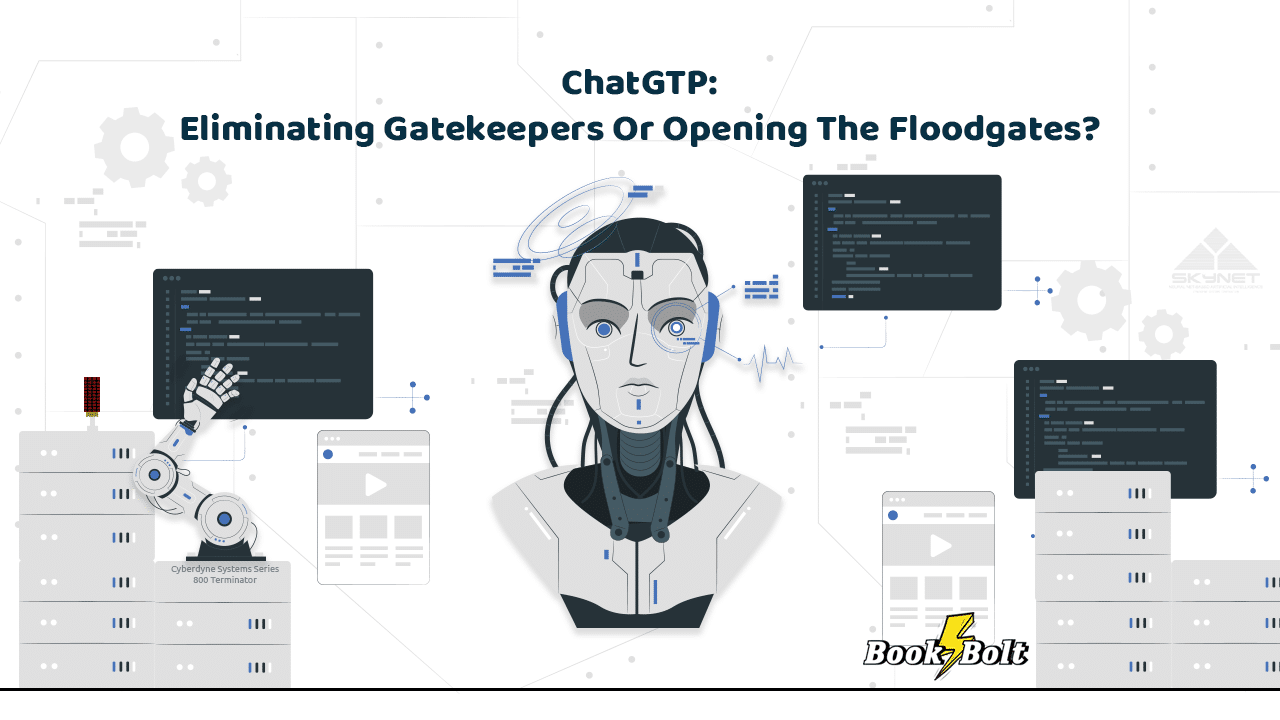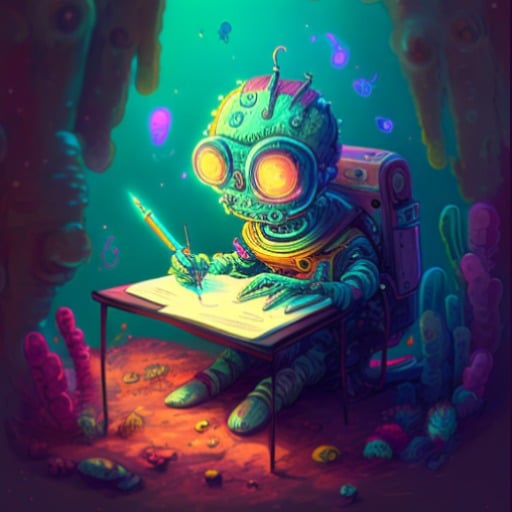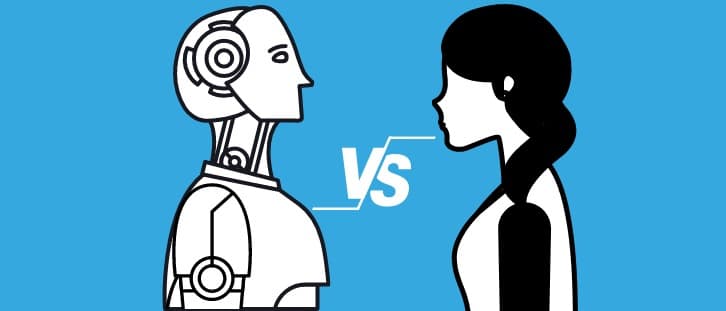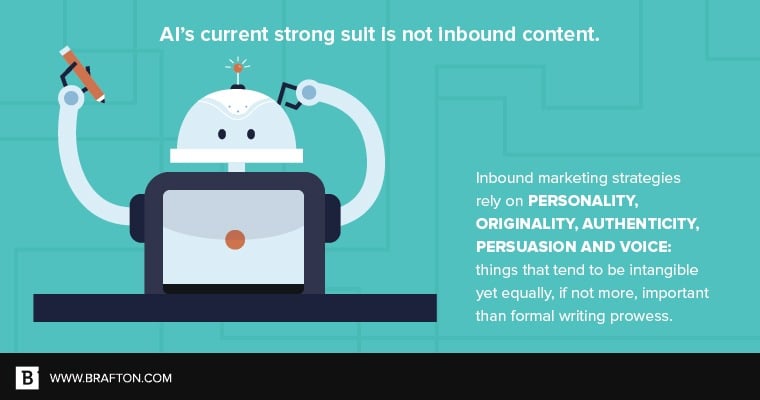
Ask anyone who has heard of AI what they think about it and chances are you will not find a single truly informed point of view out there. Sure, some people might work in that field or have an avid interest in it, but for most it’s “robots coming to take us over”. And while many will tell you this while not losing a wink of sleep over it, the realities of what AI and AI-based writing apps can do are far more different than what the media and popular entertainment forms will try to convince you of.
Although we are hardly risking our safety amongst the alleged HAL9000’s out there, could AI-driven media be a cause of actual concern when it comes to authorship and print media? That issue might still be a little murky. It has been shown that people can actually have things like ChatGPT produce complete, publishable works in hours, creations being made through text blocks from straightforward instructions, and make it available for purchase through online platforms. But is this something that will replace the human author? Will it create its own masterpieces and bare its digital soul? Do you even know who (or what) is writing the very words you are reading right now?
CHATGPT: A RISING AMAZON AUTHOR
Well, that is a tough one to answer sometimes. But there is proof out there that it can be done, and for not a lot of money. There are more than 200 e-books that name ChatGPT as an author or co-author on Amazon’s Kindle store as of the end of 2022. And it keeps growing every day. Books totally authored by ChatGPT on utilizing ChatGPT have even become a new subgenre on Amazon. Yet, because of the nature of ChatGPT and the unwillingness of many authors to reveal their use of it, it is incredibly difficult to determine the exact number of e-books that might have been produced by AI. Naturally, a few of the largest technology companies have already expressed concern over the software’s emergence, leading some of them to rapidly introduce new AI-infused features to either expose or control such content.
COURTED BY BIG TECH WHILE IT UPENDS THE INDUSTRY
ChatGPT’s quick consumer adoption has sparked a frenzy of activity in the tech community as investors pour money into startups with an AI focus and have given technology companies a new purpose in the shadow of large layoffs. After showcasing integration with ChatGPT, Microsoft, for example, garnered adoring attention recently for their otherwise dormant Bing search engine (exactly why Microsoft’s browsers and search engines wind up in disuse is the topic of a whole other conversation).
Yet, since ChatGPT learns to write by scanning millions of pages of previous material written by humans, there are already doubts about its veracity. It is often easy to determine what a human has written rather than what a chat bot has. The concept of “real writing” can be subjective and vary depending on the context and the individual’s perspective. However, generally speaking, real writing can refer to writing that is authentic, genuine, and conveys meaning or purpose to the reader. We will not include overt examples of “robot writing” here. Ultimately, what makes writing “real” is its ability to connect with the reader and make an impact, whether that impact is emotional, intellectual, or practical. It is writing that engages the reader, communicates a message or story effectively, and leaves a lasting impression.
Now when aspiring authors and self-help experts eager to make a quick buck turn to ChatGPT to help develop automated e-books and publish them through Amazon’s Kindle Direct Publishing division, the staid book industry appears poised to be upended. Such debut authors choose to write picture books for kids, for one example. And there are hundreds of tutorials showing how to build a book in a few hours on YouTube, TikTok, and Reddit. Get-rich-quick scams, nutrition ideas, software coding assistance, and recipes are among the topics usually covered by these types. This means the people being hired to write such content are being sought-out less.
Organizations like The Authors Guild are obviously concerned about such things. They note that although human ghostwriting has a long history, automation made possible by artificial intelligence (AI) has the potential to reduce book authorship to a commodity. Or that the market will wind up with a lot of low-quality publications. They are pushing for transparency when it comes to computer-generated content, so that the reader can make an informed choice about what to support. And because Amazon’s current standards do not mandate it, many authors feel zero obligation to mention in the Kindle shop that their great American work was written entirely by a computer.
Amazon is by far the biggest seller of both hard copies and digital books, accounting for well over half of sales in the US and, by some estimates, more than 80% of the e-book industry. With the support of its Kindle Direct Publishing service, a cottage industry of independently published authors has emerged, carving out specific markets for those who enjoy niche areas like erotica and self-help books. In order to eliminate the difficulty and expense of finding literary agents or publishing houses, Amazon developed Kindle Direct Publishing in 2007 to enable anybody to sell and market a book from the comfort of their couch. In general, Amazon permits authors to rapidly publish through the system without any control, dividing any profits. As you might guess, several AI-assisted authors have been drawn to this.
However you look at it, this technology is here to stay. The ethical issues of it will be with us for some time to come and will intensify as the systems get better and “more creative”. And as much as we did not wish to do something as cheesy as have ChatGPT create any of this article as an example, we kind of had to. There are four sentences in this piece that were created by the AI and infused into the body of the text untouched. And perhaps this is how AI will be more commonly used in the years to come, not as a creator of content but as an augmenter. We will have to see how it all pans out in the future.
Our Advice: We are playing in Amazon’s sandbox, and staying away from AI for your KDP publishing business is the best course of action for now.
The one thing for sure is that the genie is out of the bottle. Good luck getting it back in.




